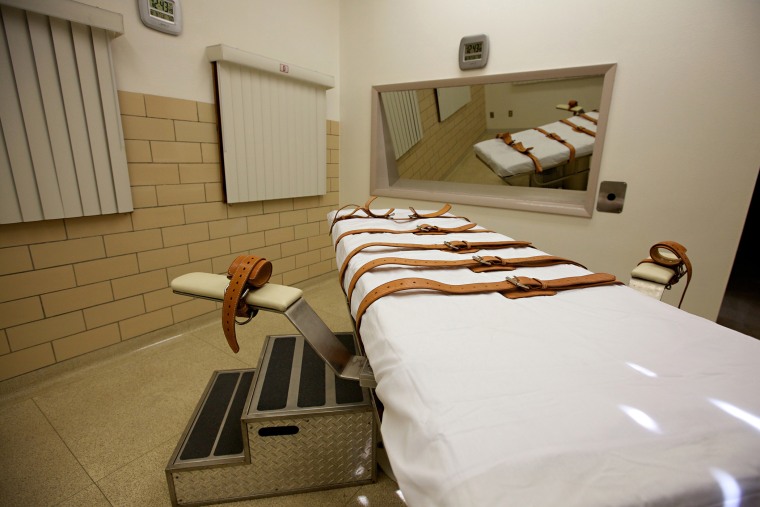A judge has temporarily blocked a pharmacy from supplying an execution drug to the Missouri Department of Corrections, a move that could have implications for an execution scheduled in that state for Feb. 26.
District Court Judge Terence Kern ruled on Wednesday that the Apothecary Shoppe in Tulsa, Okla., should not provide compounded pentobarbital for the lethal injection execution of Michael Taylor. Taylor was sentenced to death for the 1989 murder of a teenage girl.
Lawyers for Taylor argued that the state could not guarantee the drug would not cause undue pain and suffering during the execution. The major drug manufacturers that make many of the drugs previously used in executions, like sodium thiopental, have stopped selling them for use in lethal injections.
After states turned to a different drug, pentobarbitol, the Danish company that manufactures it also refused to sell it for use in executions. In response, states have turned to untested drug combinations and to compounding pharmacies, which lawyers for death row inmates argue cannot be trusted to supply safe drugs.
The drug shortage has caused controversy nationwide. Taylor's lawyers cited a January Oklahoma execution in which the inmate said he felt his whole body burning. A recent Ohio execution using an untested two-drug cocktail stretched to 25 minutes. During the execution, the condemned man was seen breathing harshly and struggling. The family of that inmate is suing the state for subjecting him to cruel and unusual punishment.
On Tuesday, Washington Governor Jay Inslee suspsended the death penalty in his state, saying there are "too many flaws in the system today" to continue using it.
